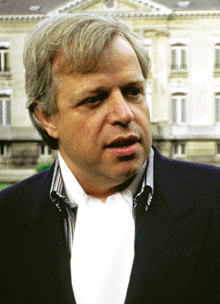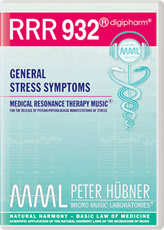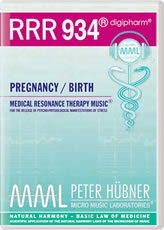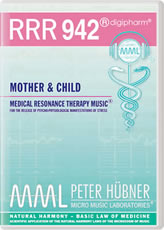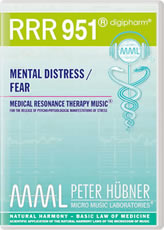Question: Herr Hübner, you are a
classical composer; how does this craft benefit you in the drawing up of the
harmonic information in your
Micro Music Laboratories?
Peter Hübner: Very much. The harmonic investigations in the microcosm of music lead us right into the center of the craft of our greatest classical sound creators. We can view our musical history – i.e. that of Europe, especially of Germany and still more particularly of Thuringia – as a process of cognition in terms of the laws of harmony of the microcosm of music. In doing so we must not take too narrow a view of the historical aspect since, up until Bach, this harmonic cognition process saw its greatest progression, whilst after Bach it already went into decline again.
Question: Does this decline explain the ‘salvationist’ leap into atonality?
Peter Hübner: Without a doubt! It became more and more apparent to composers that they had lost the spontaneous internal access to
harmony and, for atonal music, one does not need such access.
Bach’s music, and indeed the music of his time, demonstrates the highest degree of cognition in terms of the laws of harmony of the microcosm of music in our European music tradition, since these sound creators developed the highest artistic craft in working at one with these natural laws of harmony.
In saying this, I do not wish to imply that this artistic craft is finished and cannot be further developed, rather that, historically, this was the time when the greatest insight into the laws of harmony of the microcosm of music can be proven, and that this insight has since been in general decline right up to modern times.
Question: Can you explain that in more detail?
Peter Hübner: Let us take, for example, polyphony, the counter point, the art of the fugue. In Bach’s time, dealing with these compositional elements was, for him and his colleagues, still something completely natural. It was clear, too, that these compositional methods only made sense with harmonic music, and also that it was only here that they could be viewed as artistic craft. After Bach, however, the artistic craft of polyphony lost its pre-eminence in music and simple homophony became more and more widespread: the melody with added accompaniment came to the fore.
Generally, Bach’s successors only display this art of the fugue in high spots of their greatest classical works. As such, some of them who to this day enjoy great acclaim as operatic composers had difficulties with the simple fugue.
The microcosm of music recognizes no homophony whatsoever – in the same way that the microcosm of music does not, in a structural sense, recognize the phenomenon of dictatorship. But in homophony we find that synthetic, unnatural system of dictatorship – where the melody plays the role of the dictator, and the voices of the accompanying instruments assume the roles of lackeys.
The fugue – as a special area of polyphony – does not know this synthetic unnatural system of melody with added accompaniment.
Instead it is here that the melody engages in a multifaceted relationship with itself and, in doing so, assumes the role of its own accompaniment.
In social terms, this kind of structure is known today as ‘democracy’. In the simple fugue the melody engages in a multifaceted relationship with itself – similar to the natural relationship between related family members. In the case of the double fugue it is a representation of the natural relationship between the family members of two families. Accordingly, with a triple fugue it represents the natural relationship between members of three families, etc., etc.
Historically the art of the fugue had its limits, mainly due to the limitations of the technical performance skills of the individual interpreter – in the case of Johann Sebastian Bach, for example, in that he only possessed two hands and two feet with which to present a multi-voice fugue on the organ. In practice then, he was himself technically unable to exceed 4 polyphonic voices. In the case of the orchestra, the possibilities were indeed greater, but nevertheless quite limited.
Historically, the growth of the authoritarian lead orchestra has brought about a decline in the artistic craft of polyphony. Consequently, under the dictatorship of star conductors, the question of using an ‘orchestral apparatus’ of this kind for the liberated high art of the fugue, of the polyphony, of the counterpoint arises less and less often, and ultimately not at all, because polyphony depends essentially on the artistic freedom and independence of each individual musician – also in the face of a conductor who is himself striving for artistic dominance.
It has thus come about that the modern mammoth orchestra, with its restricted freedom, is barely acquainted with the artistic musical craft of polyphony. And if today a person wishes to gain meaningful insight into the counterpoint and into the art of the fugue, then he is best advised to look back to Bach’s works for the organ.

